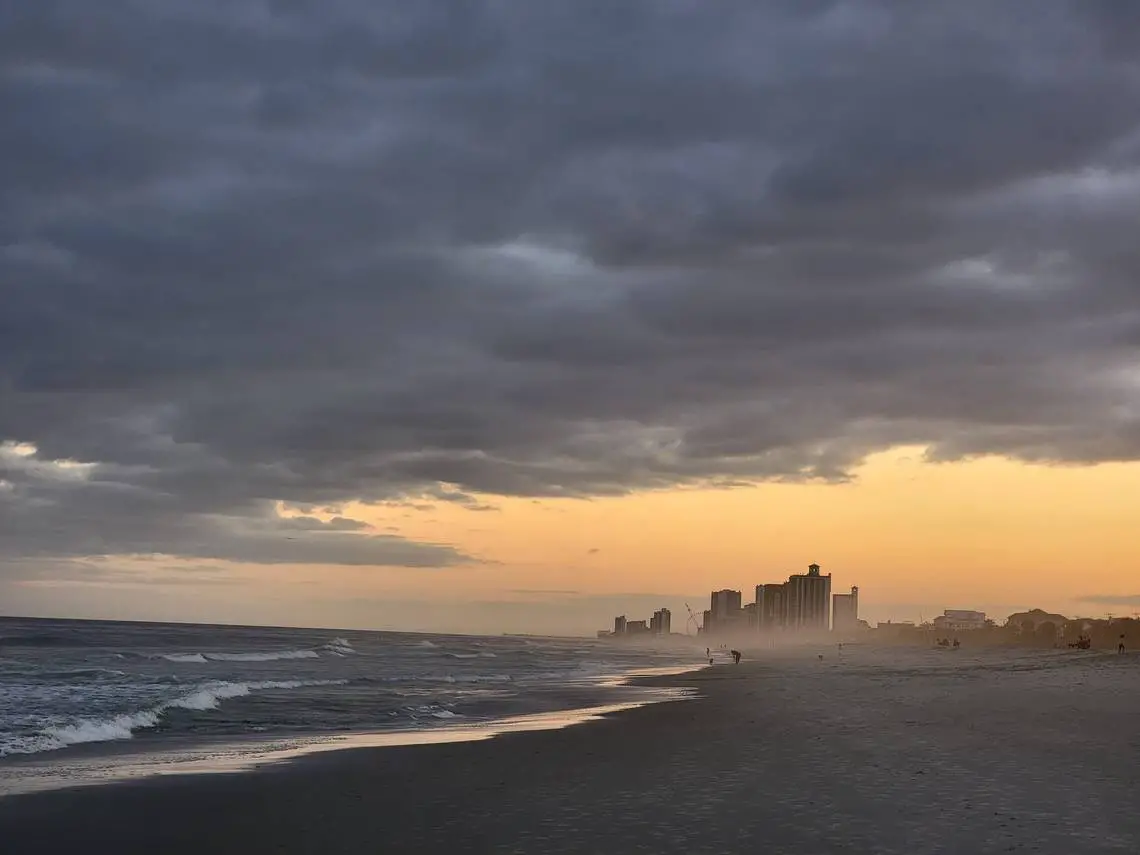If you’ve spent time on a beach in the Grand Strand this fall, you may have noticed a low-lying haze across the crescent shoreline.
The Myrtle Beach area is home to two kinds of fog: mist that forms along the shoreline and sea fog that covers the area. Here’s why and when you’ll see them.
Ocean mist
Unlike blankets of fog that roll inland and out to sea, localized beach fog is caused by the surf spray.
“Because the waves are breaking, if the atmosphere is just right, you can get that low visibility as you look down the beach or up the beach the other direction,” said Steven Pfaff, warning coordination meteorologist at the National Weather Service in Wilmington.
Wind, moisture and wave action are all atmospheric conditions that contribute to the mist that forms on beaches in the area. The waves need to be strong enough when they crash into the land to create spray. But for the fog to form, it also needs sufficient moisture in the air and calmer winds.
While this kind of fog can form anytime of year, it can be more common in the spring and fall, according to Pfaff. The mist can make for an interesting sight and, because it only forms on the beach, it won’t cause any issues for visibility.
Sea fog
On the other hand, sea fog can pose a problem for planes and boats in the Myrtle Beach area.
“That’s a function of the moisture spreading, especially in a southerly wind, over cool water temperatures,” Pfaff said. “It just generates a more widespread area of fog over the shelf waters, the coastal waters.”
Because coastal fog often forms when air is warmer than the sea surface it touches, the phenomenon is most common in the Grand Strand from the late fall to the early spring.
While the climate may have some warmer days, water temperatures remain more consistently cool. These conditions are perfect for forming thick fog over the water.


Leave a Comment